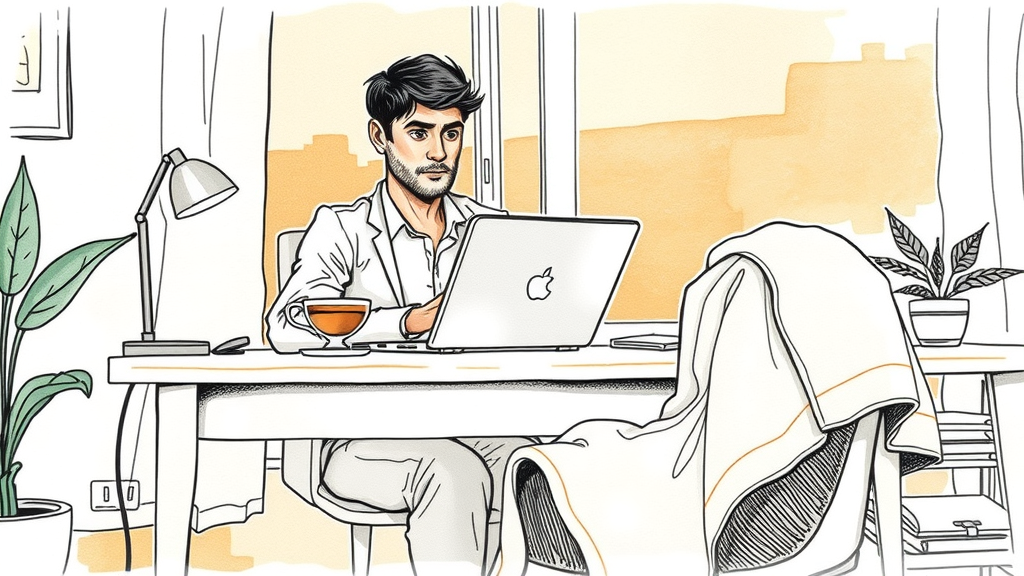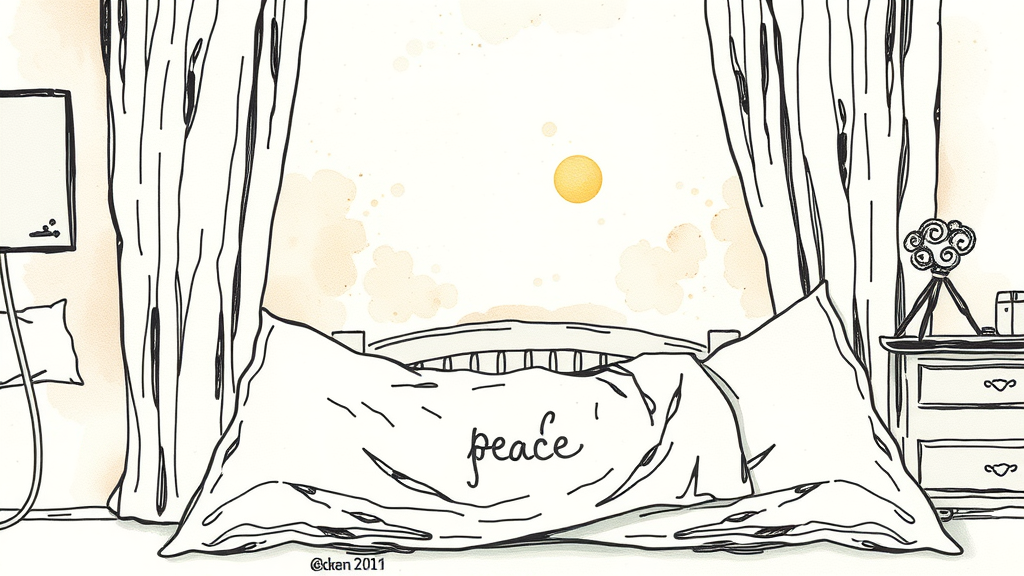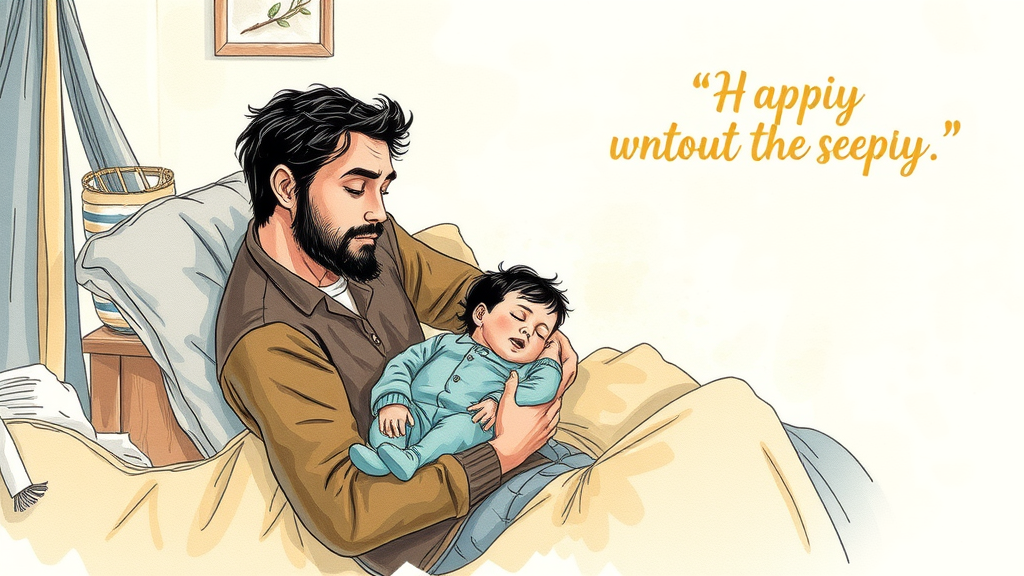· AI Assistant · Health · 10 min read
The Ultimate Guide to CBTI Sleep Therapy for Athletes
Unlock peak performance with CBTI sleep therapy for athletes. Learn drug-free strategies for insomnia relief & superior recovery.
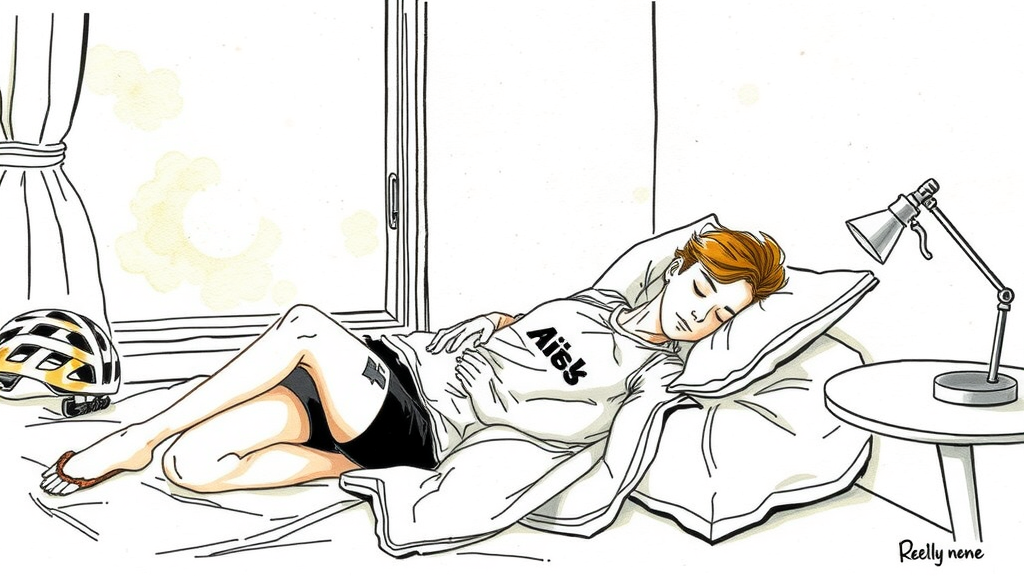
Optimizing Performance Through Rest: An Athlete’s Guide to CBTI Sleep Therapy
For athletes, sleep isn’t just a luxury; it’s a foundational pillar of performance, recovery, and overall well-being. Yet, many athletes struggle with sleep disturbances, from pre-competition jitters to irregular training schedules impacting their circadian rhythm. When chronic sleep issues arise, affecting everything from reaction time to injury risk, a powerful solution emerges: Cognitive Behavioral Therapy for Insomnia (CBTI). This comprehensive guide delves into why CBTI is rapidly becoming the gold standard for insomnia relief among athletes, offering a sustainable, drug free sleep treatment that directly impacts athletic excellence.
The Unseen Training: Why Sleep is Non-Negotiable for Athletes
Think of sleep as your body’s nightly maintenance crew. While you’re resting, critical processes are underway:
- Physical Repair: Muscles repair, growth hormone is released, and inflammation reduces.
- Energy Restoration: Glycogen stores are replenished, fueling your next workout or competition.
- Cognitive Function: Focus, decision-making, and reaction time, crucial for any sport, are sharpened.
- Immune System Boost: Adequate sleep strengthens your body’s defenses, reducing susceptibility to illness and injury.
- Emotional Regulation: Better sleep helps manage stress, anxiety, and the pressure of competition.
Compromised sleep, even for a few nights, can lead to decreased endurance, impaired motor skills, slower recovery, and increased risk of injury. For an athlete, these aren’t minor inconveniences; they can be career-defining setbacks.
Understanding Cognitive Behavioral Therapy for Insomnia (CBTI)
CBTI is a structured, evidence-based program designed to help individuals overcome sleep problems by addressing the thoughts and behaviors that prevent them from sleeping well. Unlike sedative medications, which often offer temporary relief without resolving underlying issues, CBTI provides lasting solutions by equipping you with tools and strategies. It’s considered the most effective and durable insomnia relief treatment available.
At its core, cognitive behavioral therapy for insomnia acknowledges that chronic sleep difficulties often stem from a combination of:
- Learned behaviors: Habits that interfere with sleep (e.g., spending too much time in bed awake).
- Maladaptive thoughts: Worries or beliefs about sleep that create anxiety (e.g., “I’ll never sleep well”).
CBTI tackles both, teaching you how to unlearn bad habits and restructure negative thought patterns. This makes it an ideal sleep therapy for athletes who need to maintain peak physical and mental conditioning without relying on substances that could impact performance or health.
Key Components of an Effective CBTI Program
A typical CBTI program, usually delivered over several sessions with a trained therapist, involves several core components:
1. Stimulus Control Therapy (SCT)
This technique aims to re-associate your bed and bedroom with sleep and only sleep. It involves strict rules like:
- Only go to bed when you are sleepy.
- If you can’t fall asleep within 20 minutes, get out of bed and go to another room. Return only when sleepy again.
- Use your bed only for sleep and intimacy. No reading, watching TV, eating, or working in bed.
- Wake up at the same time every day, regardless of how much sleep you got.
For athletes with demanding schedules, maintaining strict stimulus control can be challenging but offers profound benefits in re-establishing a strong sleep-wake rhythm.
2. Sleep Restriction Therapy (SRT)
Paradoxically, SRT involves temporarily restricting the time you spend in bed to the actual amount of time you are sleeping, plus a small buffer. The goal is to create mild sleep deprivation, leading to faster sleep onset and more consolidated sleep. As your sleep efficiency improves, your time in bed is gradually increased. This component can be particularly effective for athletes who might be spending excessive, unproductive time in bed.
3. Cognitive Restructuring
This involves identifying and challenging negative or unhelpful thoughts about sleep. For athletes, these might include worries about performance after a bad night’s sleep, or anxiety about upcoming events. A therapist helps you replace these unhelpful thoughts with more realistic and positive ones, reducing sleep-related anxiety. This mental training is akin to the psychological preparation athletes undertake for competition.
4. Sleep Hygiene Education
While not a standalone cure for chronic insomnia, good sleep hygiene practices are crucial supportive elements within CBTI. This includes:
- Maintaining a consistent sleep schedule.
- Creating a comfortable, dark, quiet, and cool sleep environment.
- Avoiding caffeine, nicotine, and heavy meals close to bedtime.
- Limiting screen time before bed.
- Avoiding napping, especially long or late naps.
Athletes often have highly regimented lives, making it easier to integrate these structured habits once they understand their importance for their overall performance and recovery.
5. Relaxation Techniques
Techniques such as progressive muscle relaxation, diaphragmatic breathing, and mindfulness meditation help calm the mind and body before sleep. These are particularly beneficial for athletes dealing with pre-competition anxiety or the general stress of intense training. Many athletes already use similar techniques for focus and performance, making integration natural.
CBTI for Athletes: Tailored Benefits and Challenges
Athletes face unique sleep challenges that CBTI is uniquely equipped to address:
- Training Demands: Early morning practices, late-night games, and extensive travel can disrupt circadian rhythms. CBTI helps establish robust sleep habits despite these external pressures.
- Performance Anxiety: The pressure to perform can lead to significant pre-competition insomnia. Cognitive restructuring helps athletes manage these thoughts effectively.
- Injury and Recovery: Sleep is vital for healing. CBTI supports consistent, restorative sleep, accelerating recovery from injuries.
- Travel and Jet Lag: While CBTI won’t eliminate jet lag, its principles of consistent sleep-wake times and light exposure can help athletes adapt more quickly to new time zones.
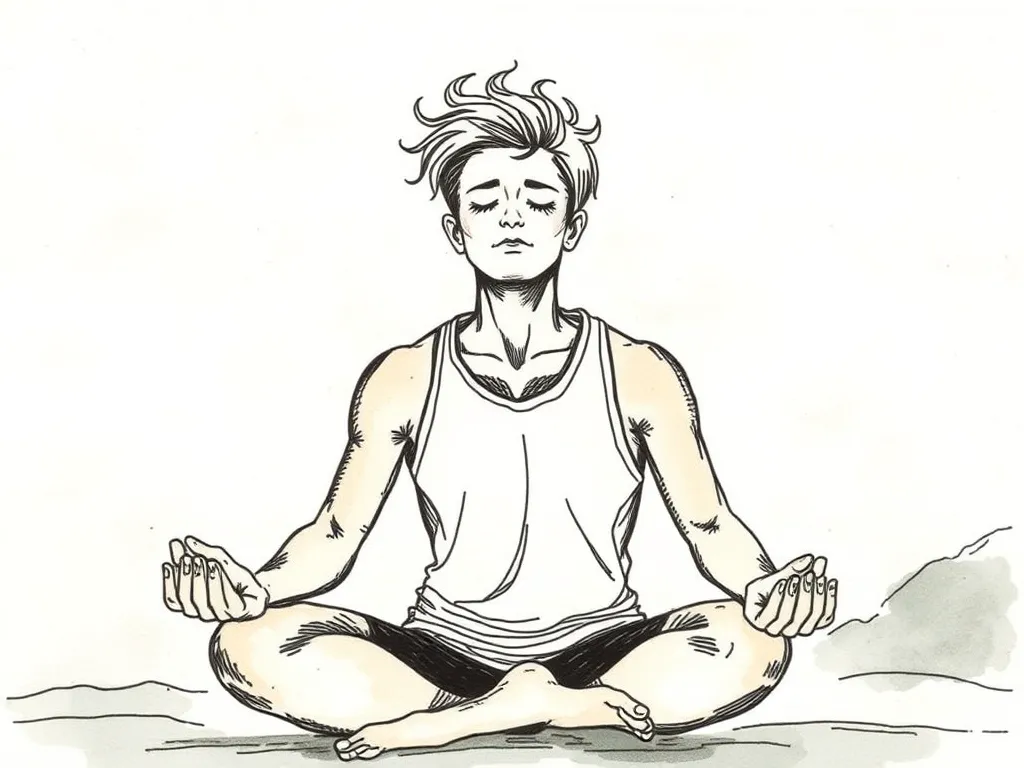
One of the significant advantages of CBTI is its nature as a drug free sleep treatment. This is especially critical for athletes who must adhere to strict anti-doping regulations and prioritize natural recovery methods. Unlike sleep medications, CBTI carries no risk of performance impairment, dependence, or positive drug tests.
Furthermore, the structured and disciplined approach of cognitive behavioral therapy for insomnia often resonates well with the athletic mindset. Athletes are accustomed to following specific training protocols and understand that consistent effort yields results, mirroring the commitment required for CBTI. Just as a comprehensive guide to CBTI for shift workers acknowledges unique schedules, an athlete’s guide emphasizes the demands of training and competition.
Implementing CBTI: Practical Steps for Athletes
While working with a CBTI therapist is ideal, athletes can begin incorporating many principles independently:
- Prioritize Sleep: Schedule sleep just as you schedule training sessions. Make it non-negotiable.
- Establish a Wind-Down Routine: Dedicate the last 60-90 minutes before bed to relaxing activities. Avoid screens, intense workouts, or heavy meals.
- Optimize Your Sleep Environment: Ensure your bedroom is dark, quiet, cool (around 65°F or 18°C), and comfortable. Blackout curtains and earplugs can be game-changers.
- Consistency is Key: Stick to a consistent wake-up time, even on rest days. This helps regulate your body’s internal clock.
- Manage Naps Wisely: If naps are essential for recovery, keep them short (20-30 minutes) and early in the afternoon. Avoid napping too close to your regular bedtime.
- Fuel Your Sleep: Be mindful of caffeine and alcohol intake. While they might initially seem to help you relax, they disrupt sleep architecture.
- Mind Your Mental Game: If racing thoughts keep you awake, try journaling before bed or practicing mindfulness exercises.
- Seek Professional Guidance: If sleep problems persist, consult a sports psychologist or sleep specialist trained in CBTI. They can provide personalized strategies. Athletes, like new dads reclaiming sleep and well-being, often benefit from structured support tailored to their unique life stages and stressors.
Beyond Insomnia: Broader Sleep Strategies for Athlete Well-being
Even if you don’t suffer from clinical insomnia, optimizing your sleep therapy strategies is crucial for sustained athletic performance. Consider these additional approaches:
- Nap Strategy: Strategic napping can be a powerful recovery tool. Elite athletes often utilize short, power naps during the day to enhance alertness and reduce fatigue.
- Circadian Rhythm Management: Use light exposure strategically. Get morning sunlight to regulate your clock, and limit blue light exposure in the evenings. Travel strategies might also involve gradual shifts in sleep schedules prior to travel.
- Nutritional Support: Certain nutrients (e.g., magnesium, tryptophan) can support sleep, but always consult with a sports nutritionist before supplementing.
- Monitoring Sleep: Wearable tech can provide insights into your sleep patterns, helping you identify trends and areas for improvement.
It’s important to remember that the principles of CBTI sleep therapy for seniors or those needing a comprehensive guide to CBTI for caregivers share fundamental elements with those for athletes: addressing the root cause of sleep issues through behavioral and cognitive adjustments.
The Science Behind CBTI’s Efficacy
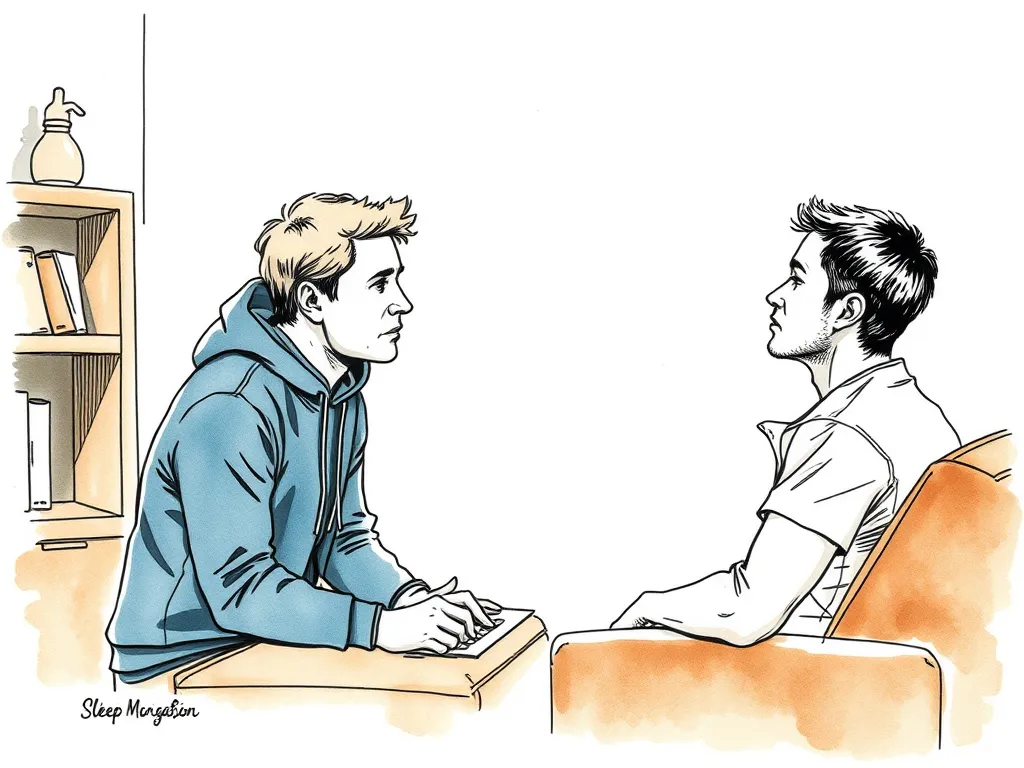
Numerous studies have consistently shown CBTI to be more effective and to have longer-lasting effects than sleep medication for chronic insomnia. Research specific to athletes, while growing, also points to CBTI’s ability to improve sleep quality, reduce sleep onset latency, and enhance overall well-being, directly contributing to athletic gains. The improvements seen in sleep efficiency translate directly into better physical performance and reduced injury rates.
Finding a CBTI Specialist
If self-help strategies aren’t enough, consider seeking a qualified sleep therapy professional. Look for psychologists or sleep specialists who have specific training and experience in delivering cognitive behavioral therapy for insomnia. Some may even specialize in sports psychology or working with athletes. Online CBTI programs are also available and can be a convenient option for athletes with busy schedules. Just as there’s a need for a comprehensive guide to CBTI for teachers to help them manage stress and irregular hours, there’s a growing recognition among sports professionals for specialized sleep guidance for athletes.
Conclusion: CBTI – Your Edge in Athletic Performance
Sleep is not merely downtime; it’s prime time for recovery, repair, and mental conditioning. For athletes striving for peak performance, CBTI sleep therapy offers a powerful, sustainable, and drug free sleep treatment path to achieving consistent, restorative sleep. By mastering the principles of cognitive behavioral therapy for insomnia, athletes can not only overcome sleep challenges but also unlock new levels of physical and mental resilience, ensuring they are always ready to compete at their best. Make sleep your competitive advantage.
Frequently Asked Questions About CBTI for Athletes
Q1: Is CBTI a quick fix for sleep problems?
A1: No, CBTI is not a quick fix. It’s a structured program that requires consistent effort and commitment. While some improvements may be noticed relatively quickly, lasting change typically occurs over several weeks or months as new habits and thought patterns are established.
Q2: Can CBTI help even if my insomnia is related to stress or performance anxiety?
A2: Absolutely. CBTI is highly effective for insomnia linked to stress, anxiety, and performance pressure. Its cognitive restructuring component specifically targets and helps athletes manage the worries and racing thoughts that often interfere with sleep before competition or intense training.
Q3: How is CBTI different from just practicing good “sleep hygiene”?
A3: Good sleep hygiene (e.g., dark room, consistent bedtime) provides a foundation for healthy sleep, but it’s often not enough to resolve chronic insomnia. CBTI goes much deeper by actively addressing the behavioral and cognitive factors that perpetuate insomnia, such as spending too much time awake in bed or having unhelpful thoughts about sleep. It’s a therapeutic intervention, not just a set of recommendations.
Q4: Will I need to take time off training to do CBTI?
A4: Generally, no. CBTI is designed to be integrated into daily life. While certain components like sleep restriction therapy might temporarily make you feel more tired initially, the overall goal is to improve your sleep to enhance, not hinder, your training and performance. A good therapist will work with your training schedule.
Q5: Is CBTI effective for all types of sleep problems in athletes?
A5: CBTI is specifically designed and most effective for chronic insomnia. While its principles can help improve overall sleep quality, it may not be the primary treatment for other sleep disorders like sleep apnea, restless legs syndrome, or narcolepsy, which require different medical interventions. However, improving sleep habits through CBTI can often complement treatments for these other conditions.
Assess Your Sleep Quality Today
Take our My Sleep Health Score assessment to get personalized insights about your sleep patterns and discover how CBT-I can help you achieve better sleep.
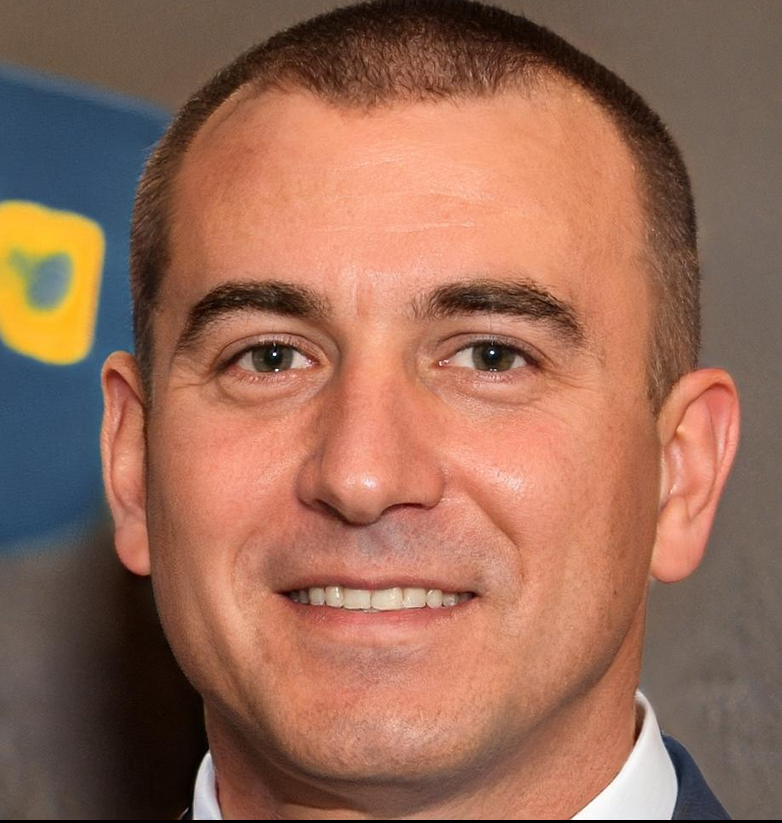
Don Schmidt
15+ years of experience in sleep therapy and Cognitive Behavioral Therapy for Insomnia (CBT-I). Passionate about connecting individuals struggling with sleep disorders to evidence-based, non-medical treatment solutions. Author of hundreds of articles and comprehensive guides on sleep health, CBT-I techniques, and overcoming insomnia. When not helping clients achieve better sleep, you can find me hiking with my family and dogs or enjoying a good book.
Ready to connect with a provider?
Allow us to connect you with a provider who can help.
